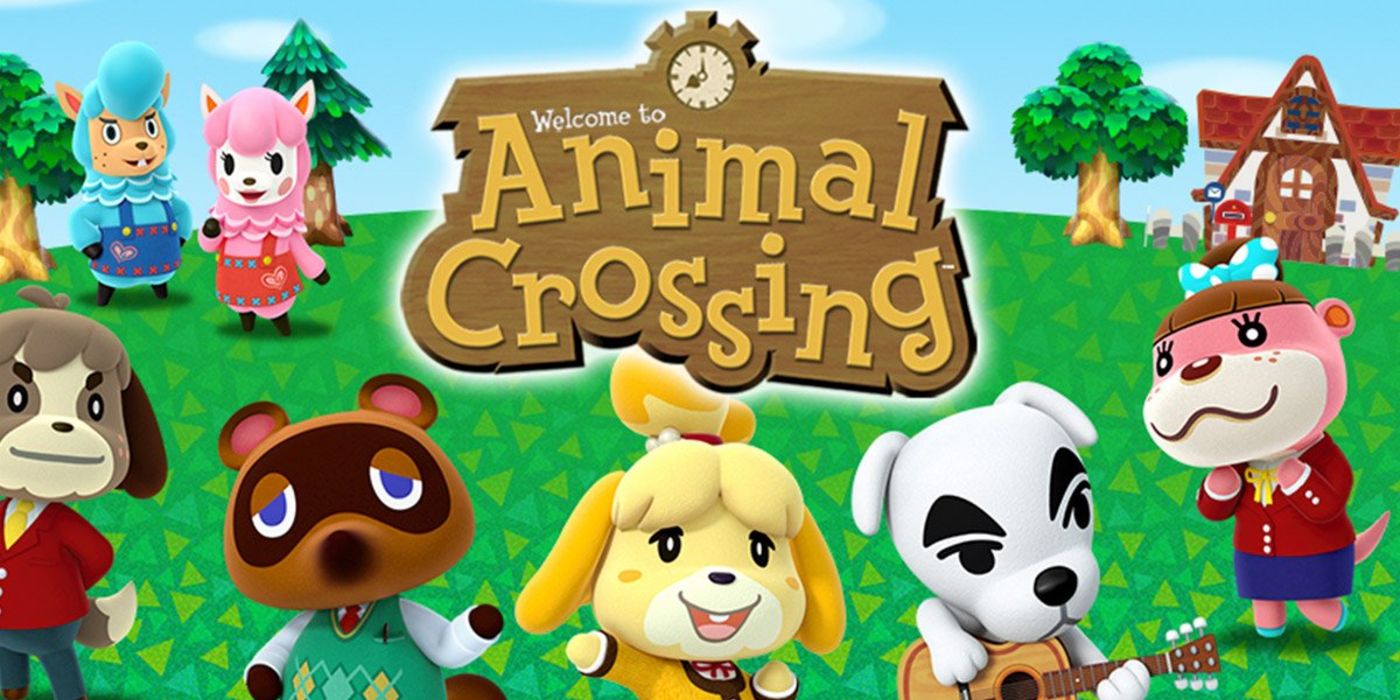Animal Crossing Was Originally Meant To Be a Different Kind of Game

Animal Crossing: New Horizons is one of the most popular titles released on the Switch. Launching at the beginning of the COVID-19 pandemic, the fifth installment of the Nintendo-exclusive series has gone on to smash sales records around the world. While the franchise has retained most of its staple mechanics through the years, Animal Crossing originated from an entirely different kind of game.
Although it's younger than many of Nintendo's other tentpole properties, the Animal Crossing series celebrates its 20th anniversary this week, making it one of the longest-running franchises in gaming today. Western gamers were first introduced to the popular life sim on GameCube in 2001, but the game released on the console's predecessor, the Nintendo 64. As it turns out, the first version of Animal Crossing, which saw a Japan-exclusive N64 release under the name Animal Forest, was closer to an RPG dungeon crawler in its early stages of development.
Taking a similar approach to that of Nintendo's other famous titles, Animal Crossing was created not from a particular setting or story, but from a specific gameplay idea. Katsuya Eguchi, a young game director at the time, came up with the idea of a game with the ability for multiple people to play in and influence one shared space, somewhat akin to Microsoft's Mesh AR tech.
This concept was made feasible by the 64DD, a short-lived peripheral for the Nintendo 64 which boosted the console's hardware and memory capabilities. In a 2008 interview during the Nintendo Game Seminar, Eguchi says the central theme kept during development was "playing with others." The initial design behind that theme involved an RPG-like world in a massive field, where gameplay would directly affect other players.

The first drafts of Animal Crossing originally began as a "relay-type" RPG, where players could jump in and continue the progress made by another player. Other elements of the game furthered its status as unconventional when compared to other role-playing games. For one, players would've relied on animal companions for their powers. Eguchi wanted to kick the convention of the protagonist acquiring skills and becoming all-powerful, instead borrowing animal abilities to overcome challenges. The game's setting was also initially different, taking place over four islands, each themed after a different season with multiple dungeons.
While it sounds like the idea was pretty fleshed out, a major issue derailed the game's original vision - the flop of the 64DD. Launching towards the end of the Nintendo 64's lifespan, the peripheral was considered a commercial failure, causing the big N to shift the project to the base N64. These imposed hardware restrictions – something developers are still dealing with on Switch –meant the Animal Crossing team had to axe the four-island idea, reducing it to a single village that changed seasons throughout the year. From there, the developers came up with the idea of players "having [their] own room," which grew into the gameplay mechanics now beloved by fans the world over.
Twenty years later, Animal Crossing: New Horizons' runaway success is a testament to the series enduring and endearing qualities. Already over a year since its release, Animal Crossing: New Horizons is back on top of UK physical game sales, proving that the radically changed direction of the original game has been all for the better.
Animal Crossing: New Horizons is available now on the Nintendo Switch.

Post a Comment